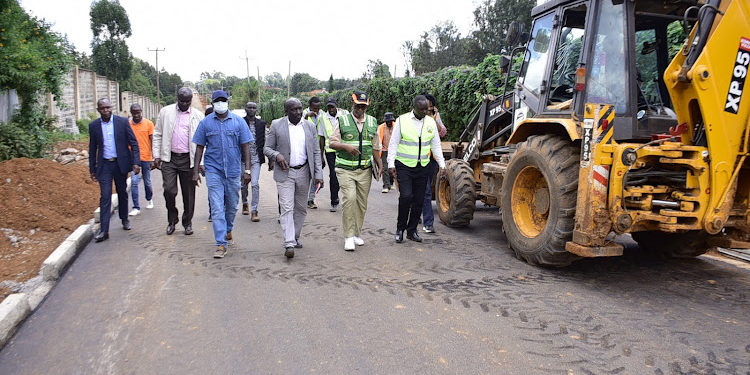The Kenya Urban Roads Authority (KURA) is set to commence the construction of a KES 7.3 billion Bus Rapid Transit (BRT) Line 5 along Nairobi’s Outer Ring Road. The project, aimed at modernizing the city’s urban transport system, is expected to be completed within two years, providing a more efficient and eco-friendly commute for Eastlands residents.
“This KES 7.3 billion (USD 56 million) project is funded by a loan from the Korean Exim Bank,” announced KURA Director General, Silas Kinoti. “Once completed, it will provide an efficient, eco-friendly, and affordable transport option for Eastlands residents commuting from Taj Mall to Allsops, connecting to Thika Road.”
KURA unveiled the detailed plan during a stakeholder consultative meeting held at the Deputy County Commissioner’s Office in Embakasi Sub County. The project will cover a 10.4-kilometre stretch, and bids for construction are expected to close by the end of October, with construction commencing in January 2025.
The BRT Line 5 will include dedicated lanes, five bridges, a 1.4-meter underpass, and 10 BRT stations, offering a much-needed upgrade to Nairobi’s public transport. The stations will be equipped with modern technologies such as vehicle location tracking, surveillance systems, and automated fare collection. Additionally, the development will feature bus depots and charging stations for electric vehicles (EVs), reflecting the government’s commitment to green energy.
“The stations will be equipped with advanced technology to ensure efficient service delivery. This includes a Vehicle Enforcement System (VES) and CCTV surveillance to guarantee safety for all passengers,” KURA said in a statement.
The project is part of the broader Nairobi Integrated Urban Development Master Plan and is designed to tackle some of the city’s most pressing issues, including traffic congestion and high carbon emissions. KURA highlighted that the BRT system will reduce travel times and offer a faster, more reliable transport solution for daily commuters.
“The BRT system promises to reduce travel times, offering Nairobians a faster and more reliable mode of transport,” Kinoti added. The project is also expected to generate job opportunities and boost skills development in the region.


















